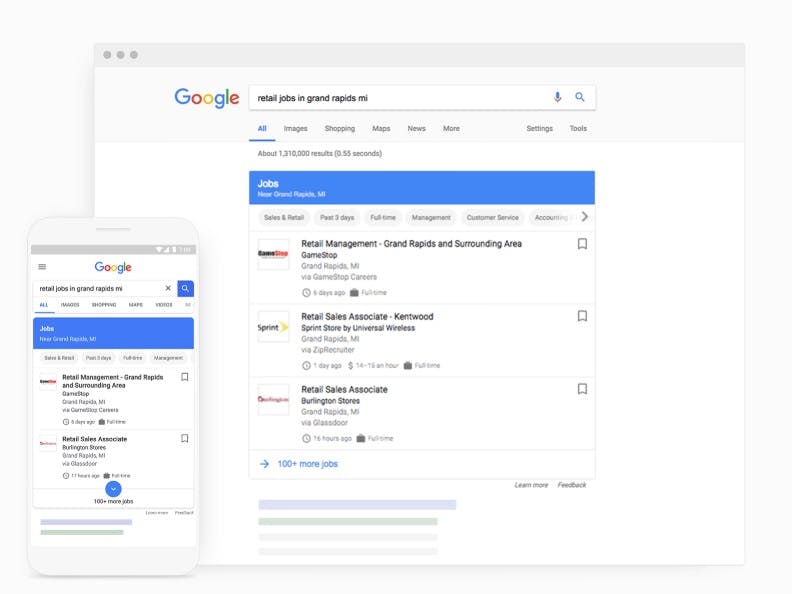The unemployment rate is at a record low and job openings are at a record high. These should be happy times for job boards that provide the all-important access to job seekers, riding a similar wave of record job listings and profits. But they are not.
CareerBuilder had been in dire straits for years before it was sold by its parent company for an estimated $500 million. DHI Group, which owns Dice, eFinancialCareers and ClearanceJobs, has been selling off its job boards one by one. And the one-time big daddy of job boards, Monster, was sold off in 2016 because of lackluster profits.
And while Indeed may dominate the market now, in the next three to five years, it’s entirely possible that today’s job boards could go out of business. Think it can’t happen? Think about the retail market and how Amazon changed everything. Think about Apple and how it completely upended the business model of the music industry. The same kind of tsunami of change is on the horizon for job boards.
This change is being driven by several trends and developments. Artificial intelligence and machine learning are making it easier and more efficient for HR departments to find quality candidates without the need for job boards. And, social media sites have encroached on the traditional turf of job boards, with 67% of social job seekers now using Facebook to search for and land jobs, according to a 2016 Jobvite survey. LinkedIn also continues to be a top destination for companies looking to fill positions.
However, the real trigger for the potential extinction of jobs boards will be that employers no longer find value in paying for job-finding services that don’t work all that well. They will just look elsewhere for alternatives that are more effective and more affordable. Newly-launched Google for Jobs is fundamentally changing the job search business by rewriting the rules for how job postings appear in search results. In short, the days of using good SEO to have job postings rank highly in search are over.
Right now, the process for posting jobs to Google for Jobs is cumbersome and requires technical, deep coding expertise to assemble the correct HTML and JSON schema tags that must be embedded in the page code of the job post. Although many job seekers begin their search on Google, they’re not seeing all the job postings that are out there and companies are missing out in a very big way. Companies are rapidly realizing the opportunity and taking steps to ensure their jobs show up in Google for Jobs search. First, by utilizing connected job boards and, second, as more tools become available to post directly, going straight to Google for Jobs.
Google recognizes that whoever owns the original job search will end up owning the market, and it’s why the company is making such a concerted effort with Google for Jobs to get consumers to spend more time directly with Google for all their job needs. In the long term, there will be no need for employers to pay job boards because they can get their listings into Google for Jobs themselves for far less than paying to post a job to a job board. Employers will simply cut out the middleman and own the relationship with the applicant directly.
For the longest time, job boards provided access to job seekers at scale – pay to post a job listing and applicants would apply in droves – but this approach is now ripe for disruption. Today’s job boards are getting squeezed by social media sites like LinkedIn and Facebook on one side and Google for Jobs on the other, while also having to compete with Indeed. Without adapting, job boards could go the way of the dinosaurs.
